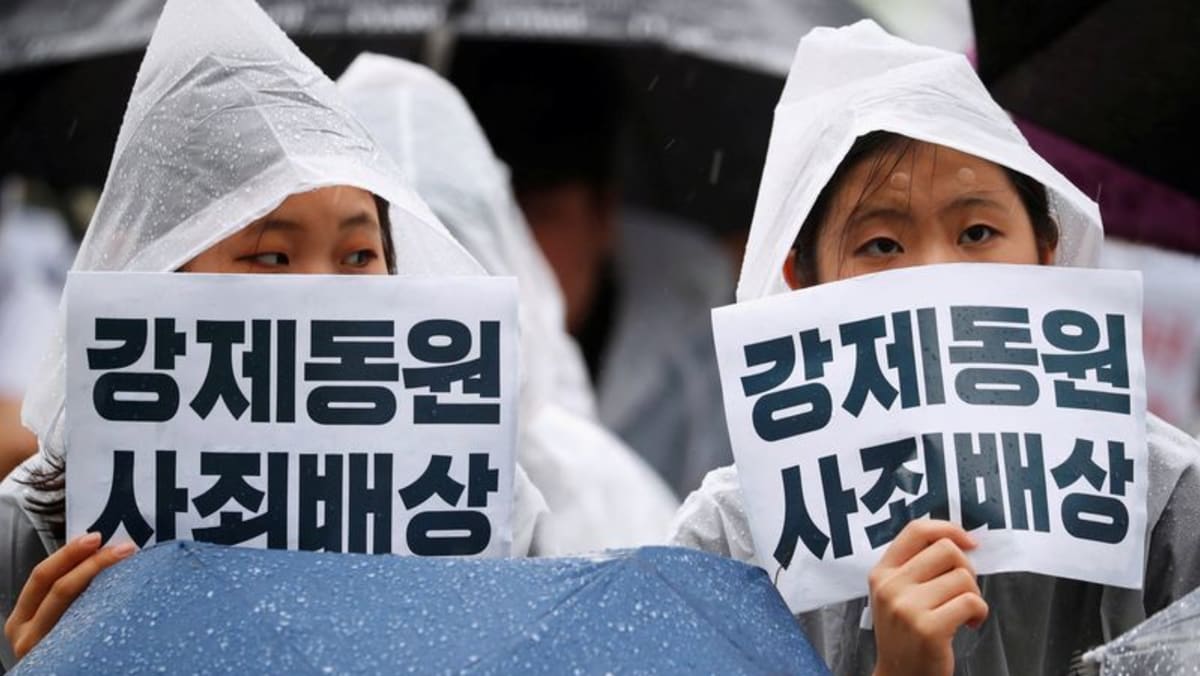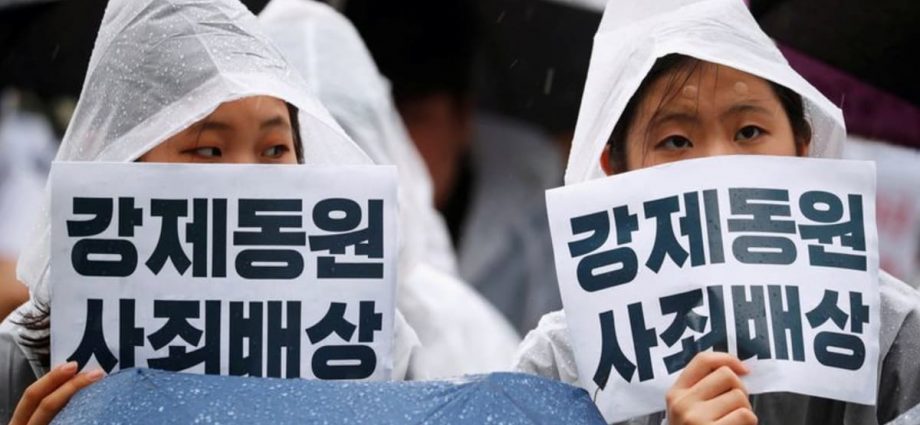
SEOUL: South Korea announced a plan on Monday (Mar 6) to compensate victims of Japan’s forced wartime labour, hoping to improve poor relations that have impeded trade, and political and military cooperation.
Japan and the United States immediately welcomed the announcement, but victims have criticised the proposal because it falls far short of their demand for a full apology from Tokyo and direct compensation from the Japanese companies involved.
South Korea’s main opposition party accused the government of capitulating to Japan.
The disagreements over labour and women forced into Japanese military brothels have bedevilled ties between the two pivotal US allies for years, but South Korean President Yoon Suk-yeol has made a push to repair the relationship.
Under the plan, South Korea would compensate former forced labourers through a public foundation funded by private-sector companies that benefited from a 1965 reparations deal with Tokyo, Foreign Minister Park Jin told a briefing.
“The soured South Korea-Japan relations should no longer be neglected, and we need to end the vicious cycle for the national interest, for the people,” Park said. He said he hopes Japan responds sincerely, including by “implementing its previous public statements expressing remorse and apology”.
None of the compensation will come from Japanese companies, said Japan’s Foreign Minister Yoshimasa Hayashi, who told reporters he hoped for further deepening of ties between the countries.
“We welcome this as a step that returns Japan-South Korea relations to a healthy one,” he said.
Poor relations between the two have been a point of concern for the United States, which is seeking to present a more unified front with its allies against the rising power of China and threats from North Korea’s expanding missile and nuclear arsenal.
A Japanese government source close to Prime Minister Fumio Kishida told reporters that the United States has been pressing both countries to reconcile, but that a main factor that triggered Yoon’s push for reconciliation is the geopolitical threat from North Korea.
SOUTH KOREAN FUNDS
When Seoul first raised the proposal in January, it sparked backlash from victims and their families because it did not include contributions from Japanese companies, including those ordered by South Korean courts to pay reparations.
About a dozen protesters demonstrated outside as Park made the announcement.
“It’s a complete victory by Japan, which has said it will not pay a single yen on the forced labour issue,” Lim Jae-sung, a lawyer for several victims, said in a Facebook post on Sunday, citing initial media reports of the deal.

